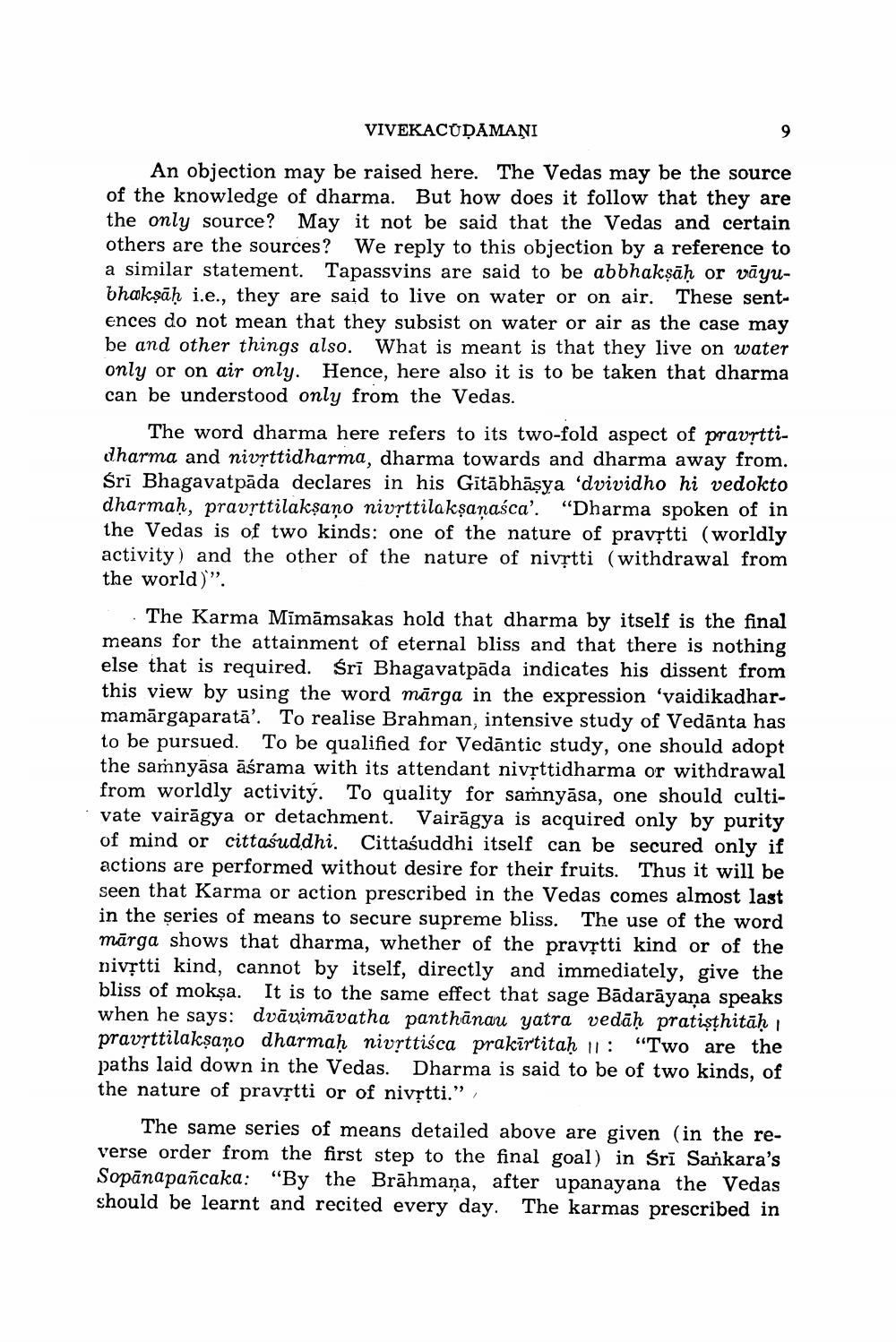________________
VIVEKACUDAMAŅI
An objection may be raised here. The Vedas may be the source of the knowledge of dharma. But how does it follow that they are the only source? May it not be said that the Vedas and certain others are the sources? We reply to this objection by a reference to a similar statement. Tapassvins are said to be abbhakşāh or vāyubhakşāḥ i.e., they are said to live on water or on air. These sentences do not mean that they subsist on water or air as the case may be and other things also. What is meant is that they live on water only or on air only. Hence, here also it is to be taken that dharma can be understood only from the Vedas.
The word dharma here refers to its two-fold aspect of pravrttidharma and nivrttidharma, dharma towards and dharma away from. Śri Bhagavatpäda declares in his Gītābhāşya 'dvividho hi vedokto dharmaḥ, pravrttilakşaņo nivsttilaksanaśca'. "Dharma spoken of in the Vedas is of two kinds: one of the nature of pravṛtti (worldly activity) and the other of the nature of nivștti (withdrawal from the world)".
· The Karma Mimāmsakas hold that dharma by itself is the final means for the attainment of eternal bliss and that there is nothing else that is required. Śrī Bhagavatpāda indicates his dissent from this view by using the word mārga in the expression 'vaidikadharmamārgaparatā'. To realise Brahman, intensive study of Vedānta has to be pursued. To be qualified for Vedāntic study, one should adopt the samnyāsa āśrama with its attendant nivịttidharma or withdrawal from worldly activity. To quality for samnyāsa, one should cultivate vairāgya or detachment. Vairāgya is acquired only by purity of mind or cittaśuddhi. Cittasuddhi itself can be secured only if actions are performed without desire for their fruits. Thus it will be seen that Karma or action prescribed in the Vedas comes almost last in the series of means to secure supreme bliss. The use of the word mārga shows that dharma, whether of the pravștti kind or of the nivștti kind, cannot by itself, directly and immediately, give the bliss of mokşa. It is to the same effect that sage Bādarāyana speaks when he says: dvāvimāvatha panthānau yatra vedāḥ pratisthitāḥ | pravrttilaksano dharmah nivrttiśca prakārtitaḥ 11: "Two are the paths laid down in the Vedas. Dharma is said to be of two kinds, of the nature of pravștti or of nivștti."
The same series of means detailed above are given (in the reverse order from the first step to the final goal) in Śrī Sankara's Sopānapañcaka: "By the Brāhmana, after upanayana the Vedas should be learnt and recited every day. The karmas prescribed in




